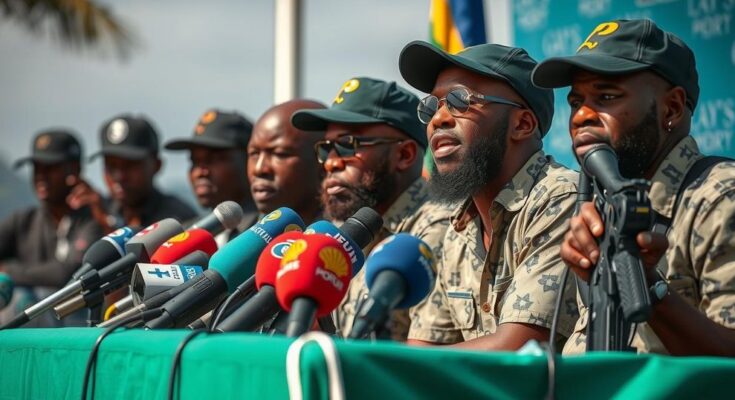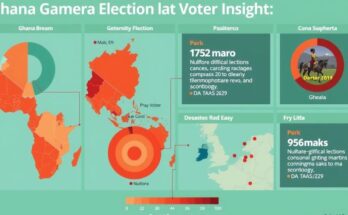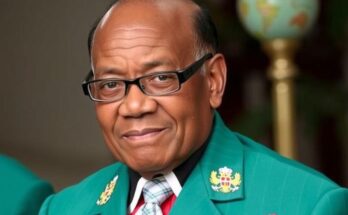Armed men attacked a press conference in Port-au-Prince, killing two and injuring others. The gathering was meant to announce the reopening of Haiti’s largest hospital. This incident reflects the nation’s worsening security crisis, with gangs controlling much of the capital and inadequate international support. The government expressed condolences and vowed consequences for the violence.
In a tragic incident in Port-au-Prince, Haiti, armed assailants opened fire during a press conference intended to announce the reopening of the nation’s largest public hospital, resulting in the deaths of two individuals, including a police officer and a journalist. Eyewitness accounts indicate that the shooting began while journalists awaited remarks from the newly appointed Health Minister, Duckenson Lorthe Blema. The violence highlights the deteriorating security situation in Haiti, dominated by gangs that control vast areas of the capital and beyond.
The recent attack underscores the ongoing crisis in Haiti, where armed gangs have increasingly taken control amidst inadequate security forces and limited international support. The transitional presidential council condemned the shooting and expressed sympathy for the victims, affirming the need for repercussions against such violence. The General Hospital has remained closed due to prior gang violence resulting in a significant reduction in operational health facilities within the area, exacerbating the humanitarian situation.
This incident occurred against a backdrop of escalating gang control, estimated to range from 80 to 90 percent in Port-au-Prince, paralyzing daily life and operations within the city. Although an international mission led by Kenya was recently approved to assist with security, its presence has yet to see substantial deployment despite Haiti’s urgent calls for assistance to bolster its own security forces. Only a small fraction of health facilities remain operational as the country confronts a humanitarian crisis driven by violence and instability.
Haiti’s security landscape has significantly deteriorated over recent years, primarily due to the increasing influence of armed gangs. Following the ousting of former Prime Minister Ariel Henry, the nation has struggled with rampant violence and civil unrest, impacting critical infrastructure, including health facilities. The State University of Haiti Hospital, pivotal for healthcare access, remains closed due to ongoing fears of gang violence, prompting broad implications for public health and safety in the capital. The slow response from international bodies to provide security support has intensified concerns among local populations and government officials.
In summary, the violent attack during a press conference in Port-au-Prince tragically highlights the perilous security climate in Haiti, where armed gangs wield considerable power. The deaths of a journalist and police officer illustrate the threats faced by those attempting to cover critical stories amidst rising violence. With international intervention lagging, the situation remains dire, underscoring the urgent need for comprehensive strategies to restore peace and security in Haiti.
Original Source: www.lismorecitynews.com.au




